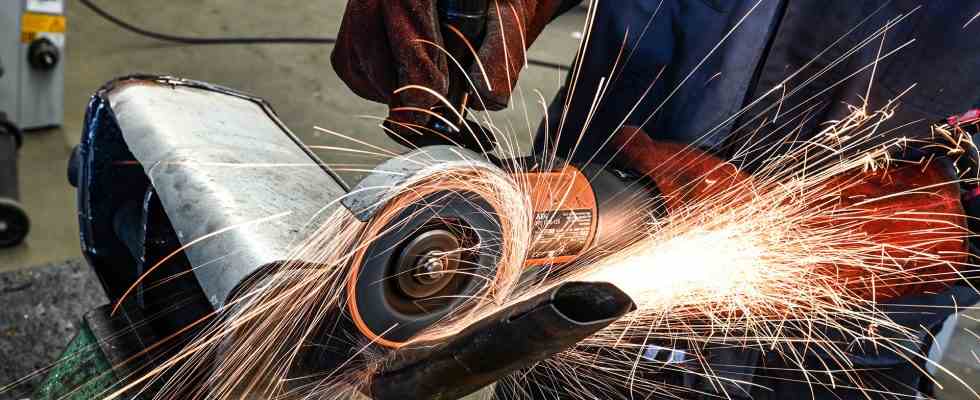Status: 03/10/2023 08:03
Chancellor Scholz will meet representatives of the four leading trade associations at the Munich Crafts Fair today. Your need for discussion is great: you demand relief, complain about the lack of skilled workers and too much bureaucracy.
First of all, the good news: Despite the dramatic rise in energy prices at times, the German economy has been spared a recession – also thanks to the crisis measures taken by politicians. Key word: LNG gas. This is also appreciated by the representatives of the business associations. But at the same time they are anxious about the future.
The German Chamber of Industry and Commerce, for example, complains that many of the previous location advantages are at risk: not only in terms of cheap energy supply, but also in terms of reliable and transparent authorities, good education, sufficient skilled workers and the transport infrastructure. Countermeasures are therefore called for, especially in four areas.
Firstly, the costs have to go down. “Since we are labour-intensive in the trades, we are naturally concerned about the cost of the solidarity and social systems,” says Holger Schwannecke from the Central Association of German Crafts. Social security contributions, which have remained stable for a long time, also thanks to the good employment situation, have risen again by more than 40 percent.
Running costs high
The cost of health and long-term care insurance could exacerbate the problem. But energy prices continue to weigh on them, many companies have nothing to do with the electricity and gas price brakes because of the high requirements.
The second area in which there is a need for action: Specialists are urgently needed. That is existential for many companies, warns Marcel Fratzscher, President of the German Institute for Economic Research. “They will disappear and go bankrupt,” he predicts, if “they just don’t have the people they need to be able to shape future investments in digital products and new technologies.”
The economy is therefore hoping for simplifications in the immigration of skilled workers – but not only in the form of legislation. According to the President of the Association of German Chambers of Industry and Commerce (DIHK), Peter Adrian, even the best immigration law for skilled workers is useless if potential workers in their home country have to wait six months for an appointment at the German consulate.
Waiting to start work
Third point: less bureaucracy. Achim Dercks, deputy general manager of the German Chamber of Industry and Commerce, says there is great frustration when entrepreneurs find out that employees “sometimes still have to fulfill official requirements on paper” before they can be deployed to serve customers. This is especially the case when there are already too few skilled workers.
Constantly new documentation requirements and specifications – often also from Brussels – made life difficult for the companies. Keyword: supply chain law. “The bureaucracy is now strangling us,” says Craft President Dittrich. The promised acceleration of approval and planning procedures are not progressing.
“Please no specifications in detail”
Fourth point of criticism: State intervention. “The question is how can you make it easier,” says Holger Loesch, deputy general manager of the Federation of German Industries. “How do you put the incentives in the right place and at the right level to make things happen?” It’s about this question. Loesch supports framework conditions – but please no specifications in detail.
Especially when it comes to the path to climate neutrality. DIHK President Adrian is even clearer: he is observing the attempt at overly complex detailed state control. Similar to the FDP, the economy therefore advocates openness to technology and defends itself against bans on individual technologies – be it in transport or in housing.
Economy meets politics: Where are the points of conflict?
Hans-Joachim Vieweger, ARD Berlin, March 10, 2023 6:48 a.m

